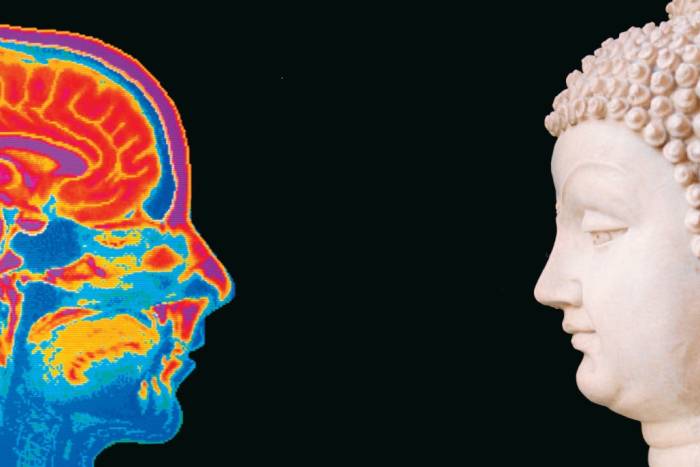How to Start Your Own (Micro)nation
If you’re thinking of becoming independent from your country, this article tells you what you have to do to create your own kingdom.
There is a place in everyone’s imagination where the idea of becoming king of our own nation springs through ––Writing a fresh constitution, getting rid of all the things that evidently do not work in governments, starting from zero with healthy political ideals. If you have ever considered putting this experiment to test with a dozen of your closest friends, today there are serious projects that tell you how to do it.
There are secessionist movements that genuinely seek to establish political and cultural independence from the country whose borders contain them. But, if you’re not interested in waging a war against the bigger country and you just want to cut your slice of the world and act as a leader of your political ideals, this is what you can do:
In How to Start Your Own Country, Erwin S. Strauss offers some options. You can, for example, live aboard a ship on international waters under the flag that best suits you, live outside the system in an autonomous community or establish a model country.
What Constitutes a Country?
There are several theories in terms of what makes a nation; but in few words, a nation is a nation if other states recognize it as such. According to the declaration of the Montevideo Convention on the Rights and Duties of States, a nation must comply with the following qualifications: “(a) a permanent population; (b) a defined territory; (c) government; and (d) capacity to enter into relations with the other states.”
Therefore, one must keep the above in mind when creating a nation. It’s important to mention that, while establishing a country is a complex and bureaucratic matter, there are wonderful options that do not require as much paperwork. Micronations, microstates, imaginary countries, countercountries, unrecognized nations or ephemeral states are all terms used to describe countries that have been declared independent by (usually eccentric) individuals or small groups that, unlike other similar attempts, have failed to achieve an extended diplomatic recognition.
In many cases, the founders of micronations have declared control over land that does in fact exist (often small islands). And, like in other countries, these nations have proclaimed declarations of independence, adopted constitutions, sought diplomatic recognition, emitted passports and so on.
The website How To Start Your Own Micronation has precise and —why not say it— fascinating instructions on how to establish one of these utopian terrestrial, viable realms.
Since most of the world is already taken, many entrepreneurs are looking out to sea. This is not new, though, remember that Leicester Hemingway, Ernest’s brother, tried to establish his own micronation called New Atlantis in Jamaican seas in the 1960s, until his humble country sank during a tropical storm. Nevertheless, we will always have people as tireless as Renato Barros, who is just a step away from being recognized by the UN as prince of his own island, Pontinha, and he already is, to himself and family, sovereign of his honest kingdom.
Image: Described by William White Gent. Augmented and published by John Speed Citizen of London.
Related Articles
Why shrinking the size of life is synonymous of well-being
One of the great misunderstandings regarding modern spirituality is that to achieve it requires many things: readings, food, exercise, travel, groups and techniques. But perhaps it should be suggested
What is energy medicine yoga?
Energy Medicine Yoga (EMYoga) is slightly different from other types of Yoga, but it provides the same benefits in addition to a few very specific ones. One of them is that it gives you much more in
Red tea, the best antioxidant beverage on earth
Red tea is considered to be the most unusual of teas because it implies a consistently different preparation process. ––It is believed that its finding came upon surprisingly when traditional green
Is the internet on the verge of self-awareness?
More than 50 years ago, Marshall McLuhan described technology as an extension of our brains, constantly mutating and branching out. “These new media have made our world into a single unit,” the
How art can help us to age, healthy
Perhaps many of us already well know the formula for aging in health and wellness. A balanced diet and, as much as possible, one that’s natural. Keep our brains active and stimulated. Preserve and
Earthanima: documenting the living language of nature
The basic intuition that the Earth is alive and that nature has a language through which it communicates with us is what prompted this wood-art project named Earthanima. For the past couple of years
Dialogue with the Dalai Lama on science and spirituality
The Dalai Lama has been interested in science since he was a child. Over the years he’s visited many laboratories and has attended conferences that discuss consciousness from the scientific point of
Brian Eno's literary recommendations to rebuild society
Artists and authors often get asked what books or records they’d take with them to a deserted island. On principle, this is naturally an extreme anthology: urgency and tragedy guide its selection. It
Bill Mollison, natural ideologue and father of permaculture
Permaculture has established itself as a path towards communitarianism, but one that is in full symbiosis with nature. In practice, it is more than just a combination of agriculture, horticulture
A New Year's resolution for the earth
Worrisome quantities of waste are generated by human populations. Especially in cities, these have reached unprecedented and alarming levels. A largely uncontrolled practice, it affects everything on










